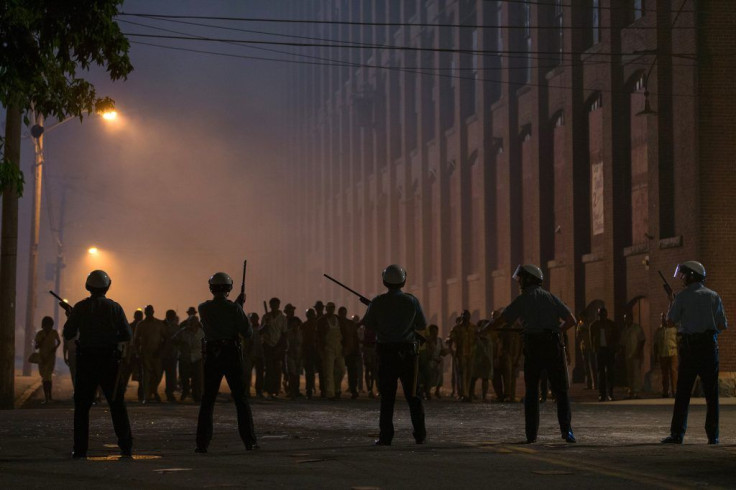Helmed by the acclaimed team behind blockbuster movies The Hurt Locker and Zero Dark Thirty , namely Kathryn Bigelow and Mark Boal, Detroit details “The Algiers Motel Incident” that occurred in Michigan back in 1967, a violent episode of police brutality that fueled the city’s most infamous civil uprising. Narratively, The 12th Street Riot serves as little more than a backdrop, though it goes a long way to fuel the sociopolitically charged outrage surrounding the race of the writer and director (Boal and Kathryn respectively). The major concern, briefly surmised, is “white hollywood” capitalizing on “black reality.” Full disclosure: I’m a person of color and so I can empathize with that evaluation. Unfortunately, that doesn’t as a rule mean it is warranted or irreproachable. Truth be told, it’s a complicated issue that likely has no clear cut answer, the only thing I wish to express is the exigent need for careful parsing in situations like this.
Not too long ago, controversy arose when artist Dana Shultz based a painting on the famous image of the mutilated body of Emmett Till. The piece debuted at the Whitney Biennial and drew a fair share of protesters because Shultz is a white woman, and protesters felt she had no agency to explore historic, black tragedies. Initially, my reaction to her work was definitively outrage for many of the reasons you might expect, but then I read Shultz’s response to the indignation and it put things in perspective.
“I don’t know what it is like to be black in America but I do know what it is like to be a mother. Emmett was Mamie Till’s only son. The thought of anything happening to your child is beyond comprehension. Their pain is your pain. My engagement with this image was through empathy with his mother,” Shultz told The New York Times. : “Art can be a space for empathy, a vehicle for connection. I don’t believe that people can ever really know what it is like to be someone else (I will never know the fear that black parents may have) but neither are we all completely unknowable.”
My precarious allegiance to “my team” blinded me. That isn’t to say the matter could ever be anything less than problematic, or even that I know now for sure that her well articulated clarification should be considered exculpatory evidence. In any case, she touched on something that is objectively important to the growth of a truly tolerant society: She doesn’t know what it is like to be black in America but she can relate to the story of Emmett Till, as a mother, on a human level.
Detroit is a story about the mistreatment of “people” so that any “person” that has a mind to tell it, has every right to do so. Of course the racial aspect of the film carries profound relevance, but I don’t know that people should have to look like you for them to be able or allowed to relate to you. Shouldn't we be aiming for the opposite?
We should never relinquish the things that make us different but we shouldn't keep allowing them to segregate us either. I never got the sense that I was watching the abhorrent things that happened that night through a white lense or an out-o- touch perspective. Maybe it’s a testament of Bigelow and Boal’s talent, but the film succeeded in making me feel as uncomfortable and reflective as it was supposed to.
Detroit isn’t a great film, but it’s a good one that sheds light on a moment in America’s history that should never be forgotten. A conversation should most certainly be had in regards to everything the film proclaims, including the race of its creators, but I implore you to step outside yourself and really discern why you feel the way you do, whichever side you fall on. It is our obligation to afford each other every possible avenue of empathy and perspective. If you are a proponent of equality and free thinkers, it’s imperative that you defend humanism above all else.

















